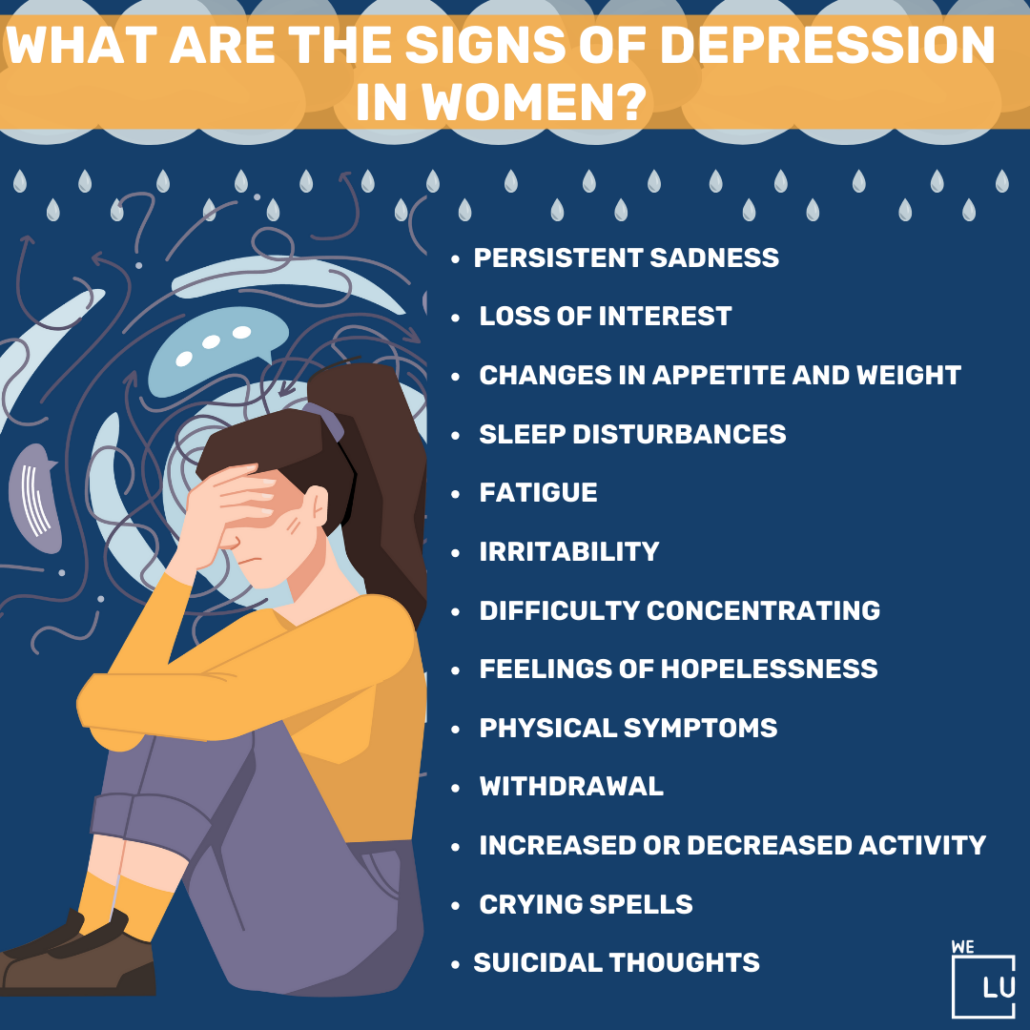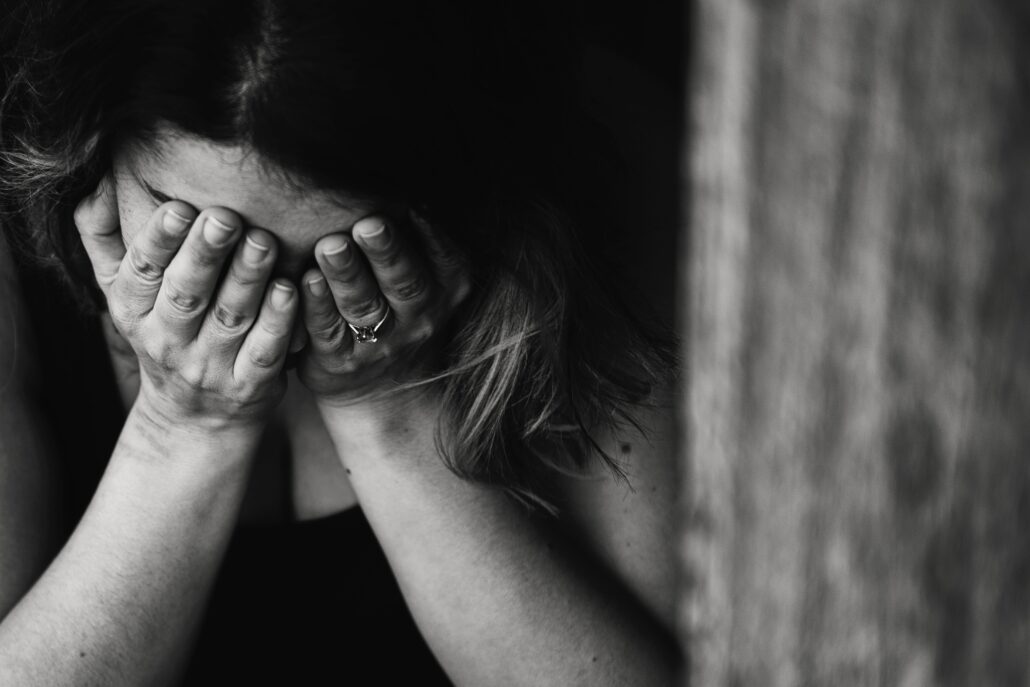Get Help. Get Better. Get Your Life Back.
Searching for Accredited Dual Diagnosis Mental Health Centers Near You?
Even if therapy failed previously, or are in the middle of a difficult crisis, we stand ready to support you. Our trusted behavioral health specialists will not give up on you. When you feel ready or just want someone to speak to about counseling alternatives to change your life call us. Even if we cannot assist you, we will lead you to wherever you can get support. There is no obligation. Call our hotline today.
FREE 24/7 Dual Diagnosis Mental Health Services HotlineDepression Fact Sheet
Depression Overview
Depression is a group of illnesses like depression or bipolar disorder connected to mood elevation or depression.
Types of Depression
Clinical Depression: A mental health disorder characterized by persistently depressed mood or loss of interest in activities, causing significant impairment in daily life.
Persistent depressive disorder: A mild but long-term form of depression.
Bipolar disorder: A disorder associated with episodes of mood swings ranging from depressive lows to manic highs.
Bipolar II disorder: A type of bipolar disorder characterized by depressive and hypomanic episodes.
Postpartum depression: Depression that occurs after childbirth.
Depression Treatments
- Support group: A place where those pursuing the same disease or objective, such as weight loss or depression, can receive counseling and exchange experiences.
- Cognitive behavioral therapy: A conversation treatment that aims to change the negative attitudes, actions, and feelings connected to psychiatric discomfort.
- Counseling psychology: A subfield of psychology that handles issues with the self that are connected to work, school, family, and social life.
- Anger management: To reduce destructive emotional outbursts, practice mindfulness, coping skills, and trigger avoidance.
- Psychoeducation: Mental health education that also helps individuals feel supported, validated, and empowered
- Family therapy: psychological counseling that improves family communication and conflict resolution.
Learn More About Depression in Women PDF Download
Depression Statistics
One of the most prevalent mental diseases in the US is major depression. Some people with severe depression may experience substantial impairments that impede or restrict their capacity to engage in meaningful life activities.
21 million
An estimated 21.0 million adults in the United States had at least one major depressive episode. This number represented 8.4% of all U.S. adults.
Source: National Institute on Mental Health
10.5%
The prevalence of major depressive episodes was higher among adult females (10.5%) than males (6.2%).
Source: National Institute on Mental Health
17.0%
The prevalence of adults with a major depressive episode was highest among individuals aged 18-25 (17.0%).
Source: National Institute of Mental Health

End the Emotional Pain. Get Your Life Back.
Feeling Depressed, Anxious or Struggling with Mental Health Illness? Get Safe Comfortable Mental Health Dual Diagnosis High-Quality Therapy From Counselors That Care. Begin Your Recovery Now.
Hotline (855) 940-6125
Depression In Men Vs Women
Depression in women exhibits distinct characteristics when compared to depression in men:
- Timing and Duration: Depression in women may manifest at an earlier age, persist for longer durations, and have a higher likelihood of recurring. It can also be closely associated with stressful life events and may show sensitivity to seasonal changes.
- Emotional Manifestations: Women with depression often experience more intense guilty feelings and are more likely to make suicide attempts, although completed suicides are less common among women compared to men.
- Comorbid Conditions: Depression in women frequently co-occurs with anxiety disorders, particularly panic and phobic symptoms, as well as eating disorders. These comorbid conditions can influence the presentation and course of depression in women.
Every person who has depression is different, and not everyone will show the same signs. Women may also have specific symptoms linked to changes in their hormones, such as changes in their menstrual cycle or more symptoms before their period.
First-class Facilities & Amenities
World-class High-Quality Mental Health Services & Behavioral Health Substance Abuse Treatment
Rehab Centers TourRenowned Mental Health Centers. Serene Private Facilities. Inpatient Rehab Programs Vary.
Mental Health Helpline (855) 940-6125Proven recovery success experience, backed by a Team w/ History of:
15+
Years of Unified Experience
100s
5-Star Reviews Across Our Centers
10K
Recovery Successes
- Comprehensive Dual-Diagnosis Treatment
- Complimentary Family & Alumni Programs
- Coaching, Recovery & Development Events
- Comfortable Onsite Medical Detox Center
What are the Causes Of Depression In Women?
The causes of depression in women can be influenced by a combination of factors, including:
- Hormonal fluctuations.
- Genetic predisposition.
- Brain chemistry.
- Life events such as trauma, loss, or chronic stress.
- Societal pressures.
- Gender roles.
- Women’s assumptions about their bodies can make them more likely to become depressed.
Because of these complicated interactions, it makes sense to look at more than one cause of depression in women.

World-class, Accredited, 5-Star Reviewed, Effective Mental Health Dual Diagnosis Programs. Complete Integrated Inpatient Rehab with Free Post Discharge Therapy Planning.
CALL (855) 940-6125End the Emotional Pain Rollercoaster. Gain Stability & Happiness Through Recovery Treatment. Start Mental Health Counseling Today. Get Free No-obligation Guidance by Behaviroal Health Specialists Who Understand Mental Health Recovery.
We Level Up Fort Lauderdale Florida Depression Center
At We Level Up in Fort Lauderdale, Florida, our depression center offers a comprehensive range of evidence-based services to care for and support individuals facing depression effectively. These services include:
- Diagnostic Assessment: Conduct thorough evaluations and assessments to accurately diagnose and understand the specific type and severity of depression experienced by individuals seeking help.
- Individual Therapy: Providing personalized one-on-one therapy sessions with qualified professionals specializing in treating depression. We employ various therapeutic approaches, such as Cognitive Behavioral Therapy (CBT), psychodynamic therapy, or interpersonal therapy, to address the underlying causes and symptoms of depression.
- Medication Management: Collaborating with psychiatrists or medical professionals to offer medication management services when appropriate. This involves prescribing, monitoring, and adjusting antidepressant medications to alleviate depressive symptoms effectively.
- Group Therapy: Hosting group therapy sessions designed specifically for individuals with depression. These group sessions create a supportive and empathetic environment where participants can share experiences, gain insights, and receive support from others who understand their challenges.
- Psychoeducation: Providing educational resources and information about depression, including its symptoms, causes, and available treatment options. We prioritize empowering individuals and their families with a deeper understanding of depression and effective management strategies.
- Coping Skills Training: Assisting individuals in developing and strengthening coping mechanisms to manage depressive symptoms effectively. Our team teaches stress reduction techniques, problem-solving skills, and effective communication strategies to enhance resilience and well-being.
- Lifestyle Changes: Offering guidance and support for healthier lifestyle choices positively impacting mental well-being. We provide information on exercise, nutrition, sleep hygiene, and stress management techniques to promote holistic healing.
- Supportive Environment: Creating a safe, non-judgmental, and compassionate space where individuals with depression feel understood and supported throughout their treatment journey. We foster a sense of community and encourage peer support, recognizing its positive impact on recovery.
- Relapse Prevention: Providing strategies and support for preventing relapses and effectively managing recurring depressive episodes. Our team helps develop personalized relapse prevention plans, identifies triggers, and equips individuals with tools to build resilience and maintain progress.
- Collaborative Care: Coordinating with other healthcare professionals, including primary care physicians or specialists, to ensure a holistic and integrated approach to care for individuals with depression. This collaborative effort addresses co-occurring conditions or contributing factors, providing comprehensive support.
Popular Signs Of Depression In Women FAQs
-
Why do women get postpartum depression?
Postpartum depression affects approximately 10-15% of women after giving birth. It is a common and significant mental health condition that can profoundly impact a woman’s well-being during the postpartum period. Women and their loved ones need to be aware of the signs and symptoms of postpartum depression and seek appropriate support and treatment when needed. Early intervention and support are crucial in helping women recover and thrive after childbirth.
Tips for Maintaining Your Mental Well-being
Video Script
At We Level Up FL, our primary focus is to provide personalized mental health services that meet each person’s needs. Our team of highly skilled professionals recognizes that the journey to mental well-being is different for everyone. Therefore, we collaborate closely with our clients to design therapy programs targeting their unique challenges and aligning with their goals.
Our approach emphasizes empathy and understanding, ensuring unwavering support and guidance throughout the therapeutic process. We firmly believe in empowering individuals to actively engage in their mental health by equipping them with the necessary tools and strategies to navigate their circumstances. Creating a safe and nurturing environment, we encourage exploration, self-discovery, and personal growth.
We understand that each person is distinct, with specific therapeutic needs. By actively listening to our clients and comprehending their concerns, strengths, and aspirations, we can develop customized therapy plans that address their particular challenges while considering their circumstances and preferences.
Experience Transformative Recovery at the We Level Up Treatment Center.
See our authentic success stories. Get inspired. Get the help you deserve.



Start a New Life
Begin with a free call to a behavioral health treatment advisor. Learn more about our dual-diagnosis programs. The We Level Up treatment center network delivers recovery programs that vary by each treatment facility. Call to learn more.
- Personalized Care
- Caring Accountable Staff
- World-class Amenities
- Licensed & Accredited
- Renowned w/ 5-Star Reviews
We’ll Call You
Search We Level Up FL Signs Of Depression In Women Resources
Sources
- National Institute of Mental Health (NIMH) – Depression: https://www.nimh.nih.gov/health/topics/depression/index.shtml
- Centers for Disease Control and Prevention (CDC) – Mental Health: Depression: https://www.cdc.gov/mentalhealth/depression/index.htm Depression symptoms in women related article
- Substance Abuse and Mental Health Services Administration (SAMHSA) – Depression: https://www.samhsa.gov/depression
- National Alliance on Mental Illness (NAMI) – Depression: https://www.nami.org/About-Mental-Illness/Mental-Health-Conditions/Depression
- MedlinePlus – Depression: https://medlineplus.gov/depression.html
- Office on Women’s Health – Depression: https://www.womenshealth.gov/mental-health/mental-health-conditions/depression Depression signs women related article
- National Suicide Prevention Lifeline – Depression: https://suicidepreventionlifeline.org/learn/about-suicide/depression/ signs of depression in a woman-related articles
- U.S. Department of Veterans Affairs – Depression: https://www.mentalhealth.va.gov/depression.asp
- National Institute on Aging (NIA) – Depression: https://www.nia.nih.gov/health/depression-and-older-adults depressed woman, signs of depression in a woman-related article
- Health Resources and Services Administration (HRSA) – Mental Health: Depression: https://www.hrsa.gov/mental-health/depression





